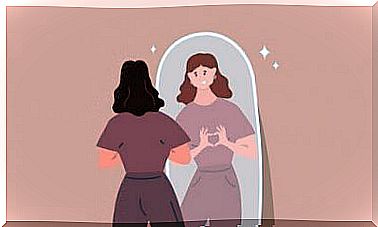Codependency In The Family Of The Drug Addict

Drug addiction is one of the psychological disorders that generates the most suffering. This chronic disorder that does not admit treatment, but rehabilitation, affects the life of the addict in its entirety, causing the destruction of his economy, his social relations and his psychological state. But beyond that, the consequences of the disease significantly affect his family, often resulting in codependency in the addict’s family.
When a family member is addicted to substances, the whole family system is altered. Father, mother, siblings or children are forced to struggle with their family member’s ailment not knowing how to help them.
Over the years, very harmful dynamics can be established which, instead of helping, worsen the situation for everyone involved. For this, it is important to define and prevent this situation.

What is codependency in the drug addict’s family
If a loved one is suffering from an addiction, it is natural to worry about their well-being and try to offer them support and help. To disinterest and completely separate from this person on an emotional level would be very complicated and not the most beneficial thing.
It makes more sense for the addict’s family members to try to talk to him, to understand him, to encourage him to seek professional help and to accompany him in the rehabilitation process. But on many occasions, the involvement is so intense that it becomes harmful and dysfunctional.
Codependency in the addict’s family occurs when another person is too involved in the patient’s problem. An over-identification with the other takes place, a fusion of identity that leads the family member to obsessively worry about the addict and to turn all his attention and energies on him, neglecting himself. The main characteristics of this phenomenon are the following:
- The life of the family member involved revolves completely around the recovery, treatment or protection of the addict.
- The unsuccessful attempts to help generate malaise and a harmful relationship of disillusionment with the drug addict.
- The codependent person denies the problem of the addicted family member , justifies his behavior or minimizes its seriousness.
- There is a tendency to hide the problem from other people. Then the patient is hidden and the possibility of sharing concerns with others or seeking help is given up.
- The family member is emotionally dependent on the addict, so he merely reacts to his actions rather than deliberately acting for himself. His well-being is completely dependent on the well-being of the other.
What factors affect the development of codependency
Not all family members of someone with drug addiction develop codependency. People who have low self-esteem and poor emotional management generally show a higher risk.
Frequently, the codependent feels guilty about what is happening to the patient and feels the need to control his behavior (he also believes he can manage it).
In general, these are people who have difficulty setting limits in their relationships with others, because they perceive this very natural act as a betrayal or a lack of loyalty.

Codependency in the drug addict’s family is harmful to everyone involved
Generally, the codependent person is not aware of how harmful his position can be. He has the feeling that his involvement is helping the addict and that it is even leading him to recovery. But the reality is totally opposite.
When the family member denies or minimizes the existence of the disease or when he bears the consequences of this, it prevents the addict from taking responsibility for his or her actions. As a result, it helps prolong drug addiction.
In addition to this, he causes severe emotional damage to himself, carrying the burden of a problem that does not belong to him and abandoning his own well-being. The best thing the codependent family member can do for the addict and himself is to return to his seat and allow the other to take his.
It is important to stop denying or concealing addiction, to feel responsible and to start setting boundaries. It is not possible to solve the drug addiction of another person, the field of action of each one is reduced to himself; so the healthiest thing is to make a distinction and take care of your emotional health.









